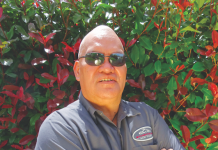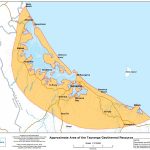The following outcomes are the results from a recent survey of Bay of Plenty Regional Council election candidates by income equity group Closing the Gap.

Candidates and Responses
Click on the person you would like to hear from:
-
-
-
-
- Stuart Crosby – Tauranga General Constituency
- Matthew Farrell – Western Bay of Plenty General Constituency
- Jenny Hobbs – Western Bay of Plenty General Constituency
- Tiipene Marr – Kōhī Māori Constituency
- Matemoana McDonald – Mauāo Māori Constituency
- Jane Nees – Western Bay of Plenty General Constituency
- Ricki Nelson – Mauāo Māori Constituency
- Katie Priscilla Paul – Rotorua General Constituency
- Stacey Rose – Tauranga General Constituency
-
-
Stuart Crosby

Stuart Crosby Q1 – Inequality
Wealth inequality and income inequality are the two issues of concern although income inequality is more frequently assessed because it is easier to measure.
What is your view of these inequalities in relation to how the organisation you are a candidate for might address them?
Both wealth inequality and income inequality are important issues which need to be addressed by councils
Q2 – Public Transport
Subsidising public transport would help address income inequality by providing cheap/zero cost alternative transport and would address wealth inequality by enabling better access to other public services. It would decrease the number of cars on our roads improving transport for all.
If public transport is subsidised, who do you think should benefit?
Free public transport for all the above at the times specified
Q3 – Living Wage
The living wage (2019) is $21.15/hr and is calculated on a national basis quantifying an hourly wage that a family of four requires to live based on one partner working full time and the other partner working half time. The current minimum wage is $17.70.
How do you think the living wage should be implemented by your council?
Councils should pay their own staff, any CCO (council controlled organisation) staff, and council contractors’ staff at least the Living Wage
Q4 – Living Wage
Do you think councils should be proactive in promoting the living wage to other organisations in the community?
By example
Q5 – Social Housing
Social housing is housing owned by councils/govt and rented to tenants.
How much should councils be involved with social housing?
Council should retain ownership of some social housing
Q6 – Community Housing
Community housing is housing provided by the community via whatever mechanisms work for the community and with the object of the housing being eventually owned by the occupiers. The one family, one plot of ground kiwi concept appears to be diminishing and new international trends are emerging in our landscape with community models. How much should councils be involved with community housing initiatives? (Please select any options you think would work in Tauranga and the Bay of Plenty and/or add your own suggestions in the space for Comments)
Clear the council land that currently has poor housing standards and enter in partnership with ‘community’ to build new housing
Q7 – Rating System
In 1879 Henry George published Progress and Poverty in which he pointed out that, perversely, poverty increased with increasing progress and that the cause of this was the accumulation of unearned wealth based on increasing value of monopoly ownership of land. His solution was land value tax.
What is your position on progressively moving rates which are currently based on capital value to rates based on land value?
I would support a detailed study of how this would be accomplished and the effects it would have
Q8 – Rating System
Some rating systems (e.g. the Tauranga rating system) include a uniform annual general charge (UAGC) which has the general effect of ratepayers of lower socio-economic status subsidising the unearned wealth accumulation of wealthier ratepayers.
What is your position on phasing out the UAGC where it applies?
I would support a detailed study of how this would be accomplished and the effects it would have.
Q9 – Wellbeing
Improving standards for children, Maori and Pasifika, mental health, infrastructure, and environment are at the heart of Central government’s 2019 Wellbeing Budget.
How can councils support the thrust of Central Government’s budget?
Take a proactive stance by increasing community inclusiveness outside of stipulated areas, eg: approaching groups for project input relevant to them.
Q10 – Knowledge of Council Staff Salaries
Many people are interested to know the range of salaries and wages paid by council as well as the numbers of employees in the various wages and salary bands.
Do you support the regular publication of councils’ wages and salary bands with strict adherence to band width which may identify the income of individual staff members at both the low and high end of the spectrum?
Yes
Back to the menu at top of page
Matthew Farrell

Matthew Farrell Q1 – Inequality
Wealth inequality and income inequality are the two issues of concern although income inequality is more frequently assessed because it is easier to measure.
What is your view of these inequalities in relation to how the organisation you are a candidate for might address them?
NC
Other Comment:
For the past ten years, my family has been renting because we could not afford home-ownership and therefore, rates. Wealth and income is a complex socio-economic subject. Local authorities cannot continue with double-digit rate rises, which proportionally affect those on lower and fixed incomes the most. However, general taxation and welfare matters are determined by central government, which is potentially better placed to manage future change. Some costs are imposed on local authorities as a result of central government policy, and the onus ought to be on central government to produce the mechanisms to fund these increased costs equitably.
Q2 – Public Transport
Subsidising public transport would help address income inequality by providing cheap/zero cost alternative transport and would address wealth inequality by enabling better access to other public services. It would decrease the number of cars on our roads improving transport for all.
If public transport is subsidised, who do you think should benefit?
NC
Other Comment:
The issue with free public transport for certain people is that many of those who are subsidising this free transport through their rates may be ineligible for free transport themselves, which creates a different type of inequality. Therefore it may be proven more desirable to provide free transportation for all at all times, such as in Estonia.
However, this means the Council would be obliged to find savings elsewhere to avoid a rates increase. This topic is worthy of reasonable debate and community consultation.
Q3 – Living Wage
The living wage (2019) is $21.15/hr and is calculated on a national basis quantifying an hourly wage that a family of four requires to live based on one partner working full time and the other partner working half time. The current minimum wage is $17.70.
How do you think the living wage should be implemented by your council?
NC
Other Comment:
In the Western Bay of Plenty, we are in a low wage economy. Tauranga was ranked 8th most expensive housing market in the world versus income according to the 15th annual Demographia International Housing Affordability Study. Personally, I would support the living wage for Council staff and contractors. However, this may mean the Council would be obliged to find savings elsewhere to avoid a rates increase. This topic is worthy of reasonable debate and community consultation.
Q4 – Living Wage
Do you think councils should be proactive in promoting the living wage to other organisations in the community?
NC
Other Comment:
Councils can lead by example and also encourage local businesses to pay at least the living wage. However, this is primarily a matter for central government in terms of both law-making and departmental management.
Q5 – Social Housing
Social housing is housing owned by councils/govt and rented to tenants.
How much should councils be involved with social housing?
NC
Other Comment:
Council should retain ownership of some social housing and should also promote independent providers of social housing.
Q6 – Community Housing
Community housing is housing provided by the community via whatever mechanisms work for the community and with the object of the housing being eventually owned by the occupiers. The one family, one plot of ground kiwi concept appears to be diminishing and new international trends are emerging in our landscape with community models. How much should councils be involved with community housing initiatives? (Please select any options you think would work in Tauranga and the Bay of Plenty and/or add your own suggestions in the space for Comments)
NC
Other Comment:
Councils need to consider land as the finite resource in the housing debate. They also need to weigh up the continued over-reliance on single-storey dwellings, which would not be acceptable in more densely populated European nations of the OECD. Community partnerships and initiatives may well need to be part of the conversation Councils have moving forward – as affordability, and construction and resource constraints become even more significant problems.
Q7 – Rating System
In 1879 Henry George published Progress and Poverty in which he pointed out that, perversely, poverty increased with increasing progress and that the cause of this was the accumulation of unearned wealth based on increasing value of monopoly ownership of land. His solution was land value tax.
What is your position on progressively moving rates which are currently based on capital value to rates based on land value?
NC
Other Comment:
While some of the basic tenets of an 1879 report may have relevance today, a detailed study (no doubt at a cost to the ratepayer) would perhaps be more relevant in 2019/20 if it considered how local territorial authorities, regional councils and unitary authorities were most equitably calculating their rates and charges in overseas jurisdictions. No system will be universally popular, but the current system should be subject to periodical review.
Q8 – Rating System
Some rating systems (e.g. the Tauranga rating system) include a uniform annual general charge (UAGC) which has the general effect of ratepayers of lower socio-economic status subsidising the unearned wealth accumulation of wealthier ratepayers.
What is your position on phasing out the UAGC where it applies?
NC
Other Comment:
The UAGC has a role to play due to factors such as individual property distance from services and amenities – such as reservoirs, pumping stations, and public reserves. Councils have baseline costs to cover.
Q9 – Wellbeing
Improving standards for children, Maori and Pasifika, mental health, infrastructure, and environment are at the heart of Central government’s 2019 Wellbeing Budget.
How can councils support the thrust of Central Government’s budget?
NC
Other Comment:
All Councils have a role to play in infrastructure provision for their community. Regional Councils, in particular, have a significant influence on environmental outcomes. There may also be certain times when a Council can seek to outreach in terms of community consultation with specific service providers. Councils should be open to innovative ways of working, which may improve outcomes without significantly increasing project costs. Councils core functions are of paramount importance.
Q10 – Knowledge of Council Staff Salaries
Many people are interested to know the range of salaries and wages paid by council as well as the numbers of employees in the various wages and salary bands.
Do you support the regular publication of councils’ wages and salary bands with strict adherence to band width which may identify the income of individual staff members at both the low and high end of the spectrum?
No
Other Comment:
One problem with complete financial transparency is that a Council would lose any competitive edge to other employers and may find itself unable to recruit or retain suitably qualified staff, due to poaching or headhunting from rival authorities or private sector companies. There are also privacy issues with the identification of individual people in small departments. The public being interested in detail is not sufficient to make a matter one of public interest. There are already suitable tools available such as https://www.payscale.com
Back to the menu at top of page
Jenny Hobbs

Jenny Hobbs Q1 – Inequality
Wealth inequality and income inequality are the two issues of concern although income inequality is more frequently assessed because it is easier to measure.
What is your view of these inequalities in relation to how the organisation you are a candidate for might address them?
Income inequality is the most significant issue and councils can address this by leading by example
Other Comment:
Income inequality, and generally low incomes in the BOP are a really serious problem. In the 2013 census Katikati urban had a deprivation index of 8/10 (10 being worst) and an average income of $20,000pa for people over the age of 15 years. It is imperative central government supported by Councils address the minimum wage and low income tax structure to begin to ease the burden on low income earners, especially those with children. In Australia the tax free threshold is $18,200 and minimum adult wage 19.49 which is much fairer than New Zealand.
Q2 – Public Transport
Subsidising public transport would help address income inequality by providing cheap/zero cost alternative transport and would address wealth inequality by enabling better access to other public services. It would decrease the number of cars on our roads improving transport for all.
If public transport is subsidised, who do you think should benefit?
Free public transport for all the above at the times specified
Other Comment:
Public transport improvements are very important but need to be alongside improvements to the roading network to include T3/Bus Lanes so the buses can move around the district in a timely manner. Public transport conversations should include Car pooling, park and ride, small buses, and utilising the railway line for passenger trains. As above though, it will be difficult getting people onto buses if travel- time on a congested road is the same as in a private vehicle.
Q3 – Living Wage
The living wage (2019) is $21.15/hr and is calculated on a national basis quantifying an hourly wage that a family of four requires to live based on one partner working full time and the other partner working half time. The current minimum wage is $17.70.
How do you think the living wage should be implemented by your council?
Councils should pay their own staff, any CCO (council controlled organisation) staff, and council contractors’ staff at least the Living Wage
Other Comment:
The Living Wage is not enough to survive on in many parts of New Zealand and needs to be accepted as the minimum wage in New Zealand
Q4 – Living Wage
Do you think councils should be proactive in promoting the living wage to other organisations in the community?
Yes
Q5 – Social Housing
Social housing is housing owned by councils/govt and rented to tenants.
How much should councils be involved with social housing?
Council should retain ownership of some social housing
Q6 – Community Housing
Community housing is housing provided by the community via whatever mechanisms work for the community and with the object of the housing being eventually owned by the occupiers. The one family, one plot of ground kiwi concept appears to be diminishing and new international trends are emerging in our landscape with community models. How much should councils be involved with community housing initiatives? (Please select any options you think would work in Tauranga and the Bay of Plenty and/or add your own suggestions in the space for Comments)
Provide ongoing financial and/or other tangible support to housing initiatives such as Housing First
Other Comment:
Co-housing, Community Housing, Eco housing, enabling Tiny House development and other innovative housing models are all areas Councils can provide support and partnerships to enable more people to be housed in affordable, warm, dry homes with security of tenure.
Q7 – Rating System
In 1879 Henry George published Progress and Poverty in which he pointed out that, perversely, poverty increased with increasing progress and that the cause of this was the accumulation of unearned wealth based on increasing value of monopoly ownership of land. His solution was land value tax.
What is your position on progressively moving rates which are currently based on capital value to rates based on land value?
I would support a detailed study of how this would be accomplished and the effects it would have
Q8 – Rating System
Some rating systems (e.g. the Tauranga rating system) include a uniform annual general charge (UAGC) which has the general effect of ratepayers of lower socio-economic status subsidising the unearned wealth accumulation of wealthier ratepayers.
What is your position on phasing out the UAGC where it applies?
Other Comment:
I would like to know more about the effects of phasing out the UAGC – I’m not sure I would support a detailed (expensive) study.
Q9 – Wellbeing
Improving standards for children, Maori and Pasifika, mental health, infrastructure, and environment are at the heart of Central government’s 2019 Wellbeing Budget.
How can councils support the thrust of Central Government’s budget?
Take a proactive stance by increasing community inclusiveness outside of stipulated areas, eg: approaching groups for project input relevant to them.
Other Comment:
I support localism and the community-led development approach to ensure local – expertise, strengths and assets are fully utilised and encourage local people to lead the change they wish to see.
Q10 – Knowledge of Council Staff Salaries
Many people are interested to know the range of salaries and wages paid by council as well as the numbers of employees in the various wages and salary bands.
Do you support the regular publication of councils’ wages and salary bands with strict adherence to band width which may identify the income of individual staff members at both the low and high end of the spectrum?
Other Comment:
I support the publication of Councils wages and salaries bands and band width, and elected members payments – I do not support individual staff members incomes being identified, other than the CEO. I support publication of same for Central government.
Back to the menu at top of page
Tiipene Marr

Tiipene Marr Q1 – Inequality
Wealth inequality and income inequality are the two issues of concern although income inequality is more frequently assessed because it is easier to measure.
What is your view of these inequalities in relation to how the organisation you are a candidate for might address them?
Income inequality is the most significant issue and councils can address this by leading by example
Q2 – Public Transport
Subsidising public transport would help address income inequality by providing cheap/zero cost alternative transport and would address wealth inequality by enabling better access to other public services. It would decrease the number of cars on our roads improving transport for all.
If public transport is subsidised, who do you think should benefit?
Free public transport for all the above at the times specified
Q3 – Living Wage
The living wage (2019) is $21.15/hr and is calculated on a national basis quantifying an hourly wage that a family of four requires to live based on one partner working full time and the other partner working half time. The current minimum wage is $17.70.
How do you think the living wage should be implemented by your council?
Councils should pay their own staff, any CCO (council controlled organisation) staff, and council contractors’ staff at least the Living Wage
Q4 – Living Wage
Do you think councils should be proactive in promoting the living wage to other organisations in the community?
Yes
Q5 – Social Housing
Social housing is housing owned by councils/govt and rented to tenants.
How much should councils be involved with social housing?
Council should retain ownership of some social housing
Q6 – Community Housing
Community housing is housing provided by the community via whatever mechanisms work for the community and with the object of the housing being eventually owned by the occupiers. The one family, one plot of ground kiwi concept appears to be diminishing and new international trends are emerging in our landscape with community models. How much should councils be involved with community housing initiatives? (Please select any options you think would work in Tauranga and the Bay of Plenty and/or add your own suggestions in the space for Comments)
Provide ongoing financial and/or other tangible support to housing initiatives such as Housing First
Q7 – Rating System
In 1879 Henry George published Progress and Poverty in which he pointed out that, perversely, poverty increased with increasing progress and that the cause of this was the accumulation of unearned wealth based on increasing value of monopoly ownership of land. His solution was land value tax.
What is your position on progressively moving rates which are currently based on capital value to rates based on land value?
I would definitely support this change
Q8 – Rating System
Some rating systems (e.g. the Tauranga rating system) include a uniform annual general charge (UAGC) which has the general effect of ratepayers of lower socio-economic status subsidising the unearned wealth accumulation of wealthier ratepayers.
What is your position on phasing out the UAGC where it applies?
I would definitely support this change
Q9 – Wellbeing
Improving standards for children, Maori and Pasifika, mental health, infrastructure, and environment are at the heart of Central government’s 2019 Wellbeing Budget.
How can councils support the thrust of Central Government’s budget?
Take a proactive stance by increasing community inclusiveness outside of stipulated areas, eg: approaching groups for project input relevant to them.
Q10 – Knowledge of Council Staff Salaries
Many people are interested to know the range of salaries and wages paid by council as well as the numbers of employees in the various wages and salary bands.
Do you support the regular publication of councils’ wages and salary bands with strict adherence to band width which may identify the income of individual staff members at both the low and high end of the spectrum?
Yes
Back to the menu at top of page
Matemoana McDonald

Matemoana McDonald Q1 – Inequality
Wealth inequality and income inequality are the two issues of concern although income inequality is more frequently assessed because it is easier to measure.
What is your view of these inequalities in relation to how the organisation you are a candidate for might address them?
Other Comment:
These issues should be considered by councils but are matters that cannot be sole addressed by councils.
Q2 – Public Transport
Subsidising public transport would help address income inequality by providing cheap/zero cost alternative transport and would address wealth inequality by enabling better access to other public services. It would decrease the number of cars on our roads improving transport for all.
If public transport is subsidised, who do you think should benefit?
Free for children (15 years old and under) at all times
Q3 – Living Wage
The living wage (2019) is $21.15/hr and is calculated on a national basis quantifying an hourly wage that a family of four requires to live based on one partner working full time and the other partner working half time. The current minimum wage is $17.70.
How do you think the living wage should be implemented by your council?
Councils should encourage local businesses to pay at least the Living Wage
Q4 – Living Wage
Do you think councils should be proactive in promoting the living wage to other organisations in the community?
Yes
Q5 – Social Housing
Social housing is housing owned by councils/govt and rented to tenants.
How much should councils be involved with social housing?
Social housing should not be part of council business
Q6 – Community Housing
Community housing is housing provided by the community via whatever mechanisms work for the community and with the object of the housing being eventually owned by the occupiers. The one family, one plot of ground kiwi concept appears to be diminishing and new international trends are emerging in our landscape with community models. How much should councils be involved with community housing initiatives? (Please select any options you think would work in Tauranga and the Bay of Plenty and/or add your own suggestions in the space for Comments)
Community housing should not be part of council business
Q7 – Rating System
In 1879 Henry George published Progress and Poverty in which he pointed out that, perversely, poverty increased with increasing progress and that the cause of this was the accumulation of unearned wealth based on increasing value of monopoly ownership of land. His solution was land value tax.
What is your position on progressively moving rates which are currently based on capital value to rates based on land value?
I would support a detailed study of how this would be accomplished and the effects it would have
Q8 – Rating System
Some rating systems (e.g. the Tauranga rating system) include a uniform annual general charge (UAGC) which has the general effect of ratepayers of lower socio-economic status subsidising the unearned wealth accumulation of wealthier ratepayers.
What is your position on phasing out the UAGC where it applies?
I would support a detailed study of how this would be accomplished and the effects it would have.
Q9 – Wellbeing
Improving standards for children, Maori and Pasifika, mental health, infrastructure, and environment are at the heart of Central government’s 2019 Wellbeing Budget.
How can councils support the thrust of Central Government’s budget?
Keep focused on core council work
Q10 – Knowledge of Council Staff Salaries
Many people are interested to know the range of salaries and wages paid by council as well as the numbers of employees in the various wages and salary bands.
Do you support the regular publication of councils’ wages and salary bands with strict adherence to band width which may identify the income of individual staff members at both the low and high end of the spectrum?
No
Back to the menu at top of page
Jane Nees

Jane Nees Q1 – Inequality
Wealth inequality and income inequality are the two issues of concern although income inequality is more frequently assessed because it is easier to measure.
What is your view of these inequalities in relation to how the organisation you are a candidate for might address them?
Both wealth inequality and income inequality are important issues which need to be addressed by councils
Q2 – Public Transport
Subsidising public transport would help address income inequality by providing cheap/zero cost alternative transport and would address wealth inequality by enabling better access to other public services. It would decrease the number of cars on our roads improving transport for all.
If public transport is subsidised, who do you think should benefit?
NC
Other Comment:
Extended free travel for Senior card holders and free for children and students at specified times
Q3 – Living Wage
The living wage (2019) is $21.15/hr and is calculated on a national basis quantifying an hourly wage that a family of four requires to live based on one partner working full time and the other partner working half time. The current minimum wage is $17.70.
How do you think the living wage should be implemented by your council?
Councils should pay their own staff, any CCO (council controlled organisation) staff, and council contractors’ staff at least the Living Wage
Q4 – Living Wage
Do you think councils should be proactive in promoting the living wage to other organisations in the community?
NC
Other Comment:
Councils should lead by example, and leave the active advocacy to you.
Q5 – Social Housing
Social housing is housing owned by councils/govt and rented to tenants.
How much should councils be involved with social housing?
Council should retain ownership of some social housing
Q6 – Community Housing
Community housing is housing provided by the community via whatever mechanisms work for the community and with the object of the housing being eventually owned by the occupiers. The one family, one plot of ground kiwi concept appears to be diminishing and new international trends are emerging in our landscape with community models. How much should councils be involved with community housing initiatives? (Please select any options you think would work in Tauranga and the Bay of Plenty and/or add your own suggestions in the space for Comments)
NC
Other Comment:
Enable the further development of community housing by a range of approaches including in partnership with developers, owners of community housing stock, and government
Q7 – Rating System
In 1879 Henry George published Progress and Poverty in which he pointed out that, perversely, poverty increased with increasing progress and that the cause of this was the accumulation of unearned wealth based on increasing value of monopoly ownership of land. His solution was land value tax.
What is your position on progressively moving rates which are currently based on capital value to rates based on land value?
NC
Other Comment:
The Bay of Plenty Regional Council already uses land value as a basis for rates setting
Q8 – Rating System
Some rating systems (e.g. the Tauranga rating system) include a uniform annual general charge (UAGC) which has the general effect of ratepayers of lower socio-economic status subsidising the unearned wealth accumulation of wealthier ratepayers.
What is your position on phasing out the UAGC where it applies?
NC
Other Comment:
I support retention of a UAGC. Adjusting the level of the UAGC provides a mechanism to adjust impact on lower socio-economic groups if a Council wishes to do so.
Q9 – Wellbeing
Improving standards for children, Maori and Pasifika, mental health, infrastructure, and environment are at the heart of Central government’s 2019 Wellbeing Budget.
How can councils support the thrust of Central Government’s budget?
NC
Other Comment:
Core to Council is consideration of the four well-beings, as is community engagement and involvement. This already supports the thrust f the Wellbeing Budget.
Q10 – Knowledge of Council Staff Salaries
Many people are interested to know the range of salaries and wages paid by council as well as the numbers of employees in the various wages and salary bands.
Do you support the regular publication of councils’ wages and salary bands with strict adherence to band width which may identify the income of individual staff members at both the low and high end of the spectrum?
Yes
Back to the menu at top of page
Ricki Nelson

Ricki Nelson Q1 – Inequality
Wealth inequality and income inequality are the two issues of concern although income inequality is more frequently assessed because it is easier to measure.
What is your view of these inequalities in relation to how the organisation you are a candidate for might address them?
Both wealth inequality and income inequality are important issues which need to be addressed by councils
Q2 – Public Transport
Subsidising public transport would help address income inequality by providing cheap/zero cost alternative transport and would address wealth inequality by enabling better access to other public services. It would decrease the number of cars on our roads improving transport for all.
If public transport is subsidised, who do you think should benefit?
Free public transport for all the above at the times specified
Q3 – Living Wage
The living wage (2019) is $21.15/hr and is calculated on a national basis quantifying an hourly wage that a family of four requires to live based on one partner working full time and the other partner working half time. The current minimum wage is $17.70.
How do you think the living wage should be implemented by your council?
Councils should pay their own staff, any CCO (council controlled organisation) staff, and council contractors’ staff at least the Living Wage
Other Comment:
Its important to make sure Council Contractors meet these same requirements.
Q4 – Living Wage
Do you think councils should be proactive in promoting the living wage to other organisations in the community?
Yes
Q5 – Social Housing
Social housing is housing owned by councils/govt and rented to tenants.
How much should councils be involved with social housing?
Council should retain ownership of some social housing
Q6 – Community Housing
Community housing is housing provided by the community via whatever mechanisms work for the community and with the object of the housing being eventually owned by the occupiers. The one family, one plot of ground kiwi concept appears to be diminishing and new international trends are emerging in our landscape with community models.
How much should councils be involved with community housing initiatives? (Please select any options you think would work in Tauranga and the Bay of Plenty and/or add your own suggestions in the space for Comments)
Clear the council land that currently has poor housing standards and enter in partnership with ‘community’ to build new housing
Other Comment:
More efficient, compact and healthy homes can be built on existing properties.
Q7 – Rating System
In 1879 Henry George published Progress and Poverty in which he pointed out that, perversely, poverty increased with increasing progress and that the cause of this was the accumulation of unearned wealth based on increasing value of monopoly ownership of land. His solution was land value tax.
What is your position on progressively moving rates which are currently based on capital value to rates based on land value?
I would support a detailed study of how this would be accomplished and the effects it would have
Q8 – Rating System
Some rating systems (e.g. the Tauranga rating system) include a uniform annual general charge (UAGC) which has the general effect of ratepayers of lower socio-economic status subsidising the unearned wealth accumulation of wealthier ratepayers.
What is your position on phasing out the UAGC where it applies?
I would support a detailed study of how this would be accomplished and the effects it would have.
Q9 – Wellbeing
Improving standards for children, Maori and Pasifika, mental health, infrastructure, and environment are at the heart of Central government’s 2019 Wellbeing Budget.
How can councils support the thrust of Central Government’s budget?
Take a proactive stance by increasing community inclusiveness outside of stipulated areas, eg: approaching groups for project input relevant to them.
Q10 – Knowledge of Council Staff Salaries
Many people are interested to know the range of salaries and wages paid by council as well as the numbers of employees in the various wages and salary bands.
Do you support the regular publication of councils’ wages and salary bands with strict adherence to band width which may identify the income of individual staff members at both the low and high end of the spectrum?
Yes
Back to the menu at top of page
Katie Priscilla Paul

Katie Priscilla Paul Q1 – Inequality
Wealth inequality and income inequality are the two issues of concern although income inequality is more frequently assessed because it is easier to measure.
What is your view of these inequalities in relation to how the organisation you are a candidate for might address them?
Both wealth inequality and income inequality are important issues which need to be addressed by councils
Q2 – Public Transport
Subsidising public transport would help address income inequality by providing cheap/zero cost alternative transport and would address wealth inequality by enabling better access to other public services. It would decrease the number of cars on our roads improving transport for all.
If public transport is subsidised, who do you think should benefit?
Free public transport for all at all times
Q3 – Living Wage
The living wage (2019) is $21.15/hr and is calculated on a national basis quantifying an hourly wage that a family of four requires to live based on one partner working full time and the other partner working half time. The current minimum wage is $17.70.
How do you think the living wage should be implemented by your council?
Councils should pay their own staff, any CCO (council controlled organisation) staff, and council contractors’ staff at least the Living Wage
Q4 – Living Wage
Do you think councils should be proactive in promoting the living wage to other organisations in the community?
Yes
Q5 – Social Housing
Social housing is housing owned by councils/govt and rented to tenants.
How much should councils be involved with social housing?
Council should retain ownership of some social housing
Q6 – Community Housing
Community housing is housing provided by the community via whatever mechanisms work for the community and with the object of the housing being eventually owned by the occupiers. The one family, one plot of ground kiwi concept appears to be diminishing and new international trends are emerging in our landscape with community models. How much should councils be involved with community housing initiatives? (Please select any options you think would work in Tauranga and the Bay of Plenty and/or add your own suggestions in the space for Comments)
Clear the council land that currently has poor housing standards and enter in partnership with ‘community’ to build new housing
Q7 – Rating System
In 1879 Henry George published Progress and Poverty in which he pointed out that, perversely, poverty increased with increasing progress and that the cause of this was the accumulation of unearned wealth based on increasing value of monopoly ownership of land. His solution was land value tax.
What is your position on progressively moving rates which are currently based on capital value to rates based on land value?
The rating system should be progressively moved to a user-pays system for everything
Q8 – Rating System
Some rating systems (e.g. the Tauranga rating system) include a uniform annual general charge (UAGC) which has the general effect of ratepayers of lower socio-economic status subsidising the unearned wealth accumulation of wealthier ratepayers.
What is your position on phasing out the UAGC where it applies?
I would definitely support this change
Q9 – Wellbeing
Improving standards for children, Maori and Pasifika, mental health, infrastructure, and environment are at the heart of Central government’s 2019 Wellbeing Budget.
How can councils support the thrust of Central Government’s budget?
Take a proactive stance by increasing community inclusiveness outside of stipulated areas, eg: approaching groups for project input relevant to them.
Q10 – Knowledge of Council Staff Salaries
Many people are interested to know the range of salaries and wages paid by council as well as the numbers of employees in the various wages and salary bands.
Do you support the regular publication of councils’ wages and salary bands with strict adherence to band width which may identify the income of individual staff members at both the low and high end of the spectrum?
Yes
Back to the menu at top of page
Stacey Rose

Stacey Rose Q1 – Inequality
Wealth inequality and income inequality are the two issues of concern although income inequality is more frequently assessed because it is easier to measure.
What is your view of these inequalities in relation to how the organisation you are a candidate for might address them?
Both wealth inequality and income inequality are important issues which need to be addressed by councils
Q2 – Public Transport
Subsidising public transport would help address income inequality by providing cheap/zero cost alternative transport and would address wealth inequality by enabling better access to other public services. It would decrease the number of cars on our roads improving transport for all.
If public transport is subsidised, who do you think should benefit?
Free public transport for all the above at the times specified
Other Comment:
I believe that for our public transport to be used to its full potential, we need people using it. Now we can do that by giving free buses for our Senior Citizens. It will help them get from place to place. For children, I believe it should be for all school ages right up to 18, as some 16,17 and 18 year olds at high school may not drive, so if younger people are getting free buses and they aren’t, where is the fairness in that. Community services card holders I think would need to be discussed and thoroughly checked.
Q3 – Living Wage
The living wage (2019) is $21.15/hr and is calculated on a national basis quantifying an hourly wage that a family of four requires to live based on one partner working full time and the other partner working half time. The current minimum wage is $17.70.
How do you think the living wage should be implemented by your council?
Councils should pay their own staff, any CCO (council controlled organisation) staff, and council contractors’ staff at least the Living Wage
Other Comment:
I also believe that council needs to encourage bigger businesses (Kmart, Countdown, The Warehouse etc) to pay the living wage.
Q4 – Living Wage
Do you think councils should be proactive in promoting the living wage to other organisations in the community?
Yes
Q5 – Social Housing
Social housing is housing owned by councils/govt and rented to tenants.
How much should councils be involved with social housing?
Council should retain ownership of some social housing
Other Comment:
Now as a regional council candidate, Regional Council won’t have as much of a say in this issue. But, I would fully endorse our council taking ownership of some social housing if we needed to.
Q6 – Community Housing
Community housing is housing provided by the community via whatever mechanisms work for the community and with the object of the housing being eventually owned by the occupiers. The one family, one plot of ground kiwi concept appears to be diminishing and new international trends are emerging in our landscape with community models. How much should councils be involved with community housing initiatives? (Please select any options you think would work in Tauranga and the Bay of Plenty and/or add your own suggestions in the space for Comments)
Provide ongoing financial and/or other tangible support to housing initiatives such as Housing First
Other Comment:
I do believe that this is a big opportunity for councils to have a impact in the community. Council should at least provide some other tangible support for these initiatives.
Q7 – Rating System
In 1879 Henry George published Progress and Poverty in which he pointed out that, perversely, poverty increased with increasing progress and that the cause of this was the accumulation of unearned wealth based on increasing value of monopoly ownership of land. His solution was land value tax.
What is your position on progressively moving rates which are currently based on capital value to rates based on land value?
I would support a detailed study of how this would be accomplished and the effects it would have
Other Comment:
I wouldn’t want to make any brash decisions without having a full consultation and study completed. This is only because we need to understand that everyone needs to pay their fair share. I’m not opposed to the idea, but I would at least like us to look into it first.
Q8 – Rating System
Some rating systems (e.g. the Tauranga rating system) include a uniform annual general charge (UAGC) which has the general effect of ratepayers of lower socio-economic status subsidising the unearned wealth accumulation of wealthier ratepayers.
What is your position on phasing out the UAGC where it applies?
I would definitely support this change
Other Comment:
As I stated before, everyone pys their fair share. Those who earn more pay their way. They don’t like it too bad. This system (UAGC) should be abolished.
Q9 – Wellbeing
Improving standards for children, Maori and Pasifika, mental health, infrastructure, and environment are at the heart of Central government’s 2019 Wellbeing Budget.
How can councils support the thrust of Central Government’s budget?
Take a proactive stance by increasing community inclusiveness outside of stipulated areas, eg: approaching groups for project input relevant to them.
Other Comment:
We need to make an Effort. It doesn’t matter how old you are, as a Councillor you have been elected to represent the people. I will be having that proactive approach and speaking to the people about what they think needs to happen. I am a kiwi, and I want to ensure everyone in our city is healthy, safe and happy!
Q10 – Knowledge of Council Staff Salaries
Many people are interested to know the range of salaries and wages paid by council as well as the numbers of employees in the various wages and salary bands.
Do you support the regular publication of councils’ wages and salary bands with strict adherence to band width which may identify the income of individual staff members at both the low and high end of the spectrum?
No
Other Comment:
There is too much of a risk for error. I believe that members of council staff will get paid what they get paid. They also need to live, pay rent, pay mortgages, pay bills etc. They should be able to do that without the public knowing how much they earn.
Back to the menu at top of page
The following Bay of Plenty Regional Council candidates who did NOT complete the survey:
Norm Brunning, Toi Kai Rakau Iti, Kevin Winters, Lyall Thurston
You can also read the responses from candidates for:
-











































































